One GulfWatch Alaska project, the Continuous Plankton Recorder (CPR) survey, is the longest-running marine science project of its kind. It began in 1931 when the scientist Sir Alister Hardy investigated how herring were influenced by plankton in the North Sea. This month the distance surveyed will reach an impressive 7m nautical miles, equivalent to 320 circumnavigations of the Earth.
Since that first tow from Hull to Germany 89 years ago, the equipment has hardly changed. So far a quarter of a million samples have been analysed, representing a vast geographical spread over the course of the past century. The immense scope has allowed scientists to see dramatic patterns in ocean health, across both time and space, building a much clearer picture of how our marine environments are changing.
To read more about how this research aides in understanding marine ecosystem change, check out this recent arcticle published in The Guardian: https://www.theguardian.com/environment/2020/jun/19/tiny-plankton-tell-the-oceans-story-this-vast-marine-mission-has-been-listening



